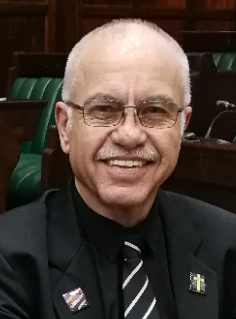FERRIER INTERNATIONAL thanks Cees Bruggemans, Chief Economist of FNB for this article which we share with you.
***************************

The Zuma vision
 |
| By Cees Bruggemans, Chief Economist FNB |
| 4 June 2009 |
 |
|
With the recession biting deep, some 200 000 to 300 000 formal jobs being lost rather than being created this year, informal work opportunities being lost as money is tight and public service delivery in many areas struggling to bring its side, Mr Zuma provided us with his vision as to how these things will be addressed. The President crafted his speech around two distinct topics, namely addressing the immediate consequences of the recession, and in a broader context offering a Medium-Term Strategic Framework through 2014 for addressing public sector shortcomings. Unsaid was the expectation that government spending will continue to increase in real terms, that growing tax revenue shortfalls will be funded through increased borrowing and that as a consequence the national debt will be allowed to cyclically rise before subduing it once again in later years once growth revives. Besides such direct state support for the economy, the SARB has lowered interest rates, with probably more cuts still to come, thereby also providing crucial support for the economy. In the final instance, South Africans will be dependent on the rest of the world to similarly take corrective action everywhere, ultimately collectively pulling us out of this deep morass globally.-?-? This reality makes the public sector and the construction sector (between them one-sixth of GDP) probably the only areas in the economy where there will still be vigorous employment gains this year. With this as background, Mr Zuma favours minimizing the impact of the downturn on the most vulnerable, whether in formal employment (likely to be retrenched) or out of it. Besides many of the most vulnerable enjoying access to social grants, with 13.5 million recipients so far but with this tally likely to rise further, Mr Zuma envisions a much expanded Public Works Programme, putting money in the hands of those with minimal safety nets. In contrast, formal sector job losses will be addressed through various mechanisms, about which few specifics or quantification was forthcoming. There was mention of encouraging ‘training layoff’, with retrenched workers kept in employment for a period while being re-skilled. Hope was expressed that the Commission for Conciliation, Mediation and Arbitration could find legal alternatives to retrenchment with the various role players involved. There is the intention of government buying more goods and services locally (reminding of Obama’s Buy American). Pride of place was given to the IDC funding companies in distress, apparently meaning otherwise viable companies brought fatally low by recession, but not blanket sector-wide support or support for businesses beyond saving. There was furthermore mention of a Scaled Up Industrial Policy Action Plan, involving mainly manufacturing (specifically motor industry, chemicals, metal fabrication, clothing and textiles, light manufacturing), but also forestry, services (tourism and other) and construction. It is not clear how these various action plans will prevent job losses or create new work opportunities. By the time these actions are taken, the economy may well be past its recessionary low point, with labour layoffs mostly completed. Still, some job losses may be prevented and new jobs created in time. Much bigger ambitions seem focused on the expanded Public Works Programme, where it is hoped to help half a million people during 2H2009 and up to 4 million people through 2014. This presumably will benefit especially the lesser skilled person with few chances of finding deployment in the formal sector. Though some of these initiatives are new or may appear ambitious, Mr Zuma was careful to stress these actions will be undertaken within currently constrained budget realities, given the global crisis backdrop and the recession. Still, with government expenditure set to keep growing smartly in real terms, there is obvious scope to do at least something, if only to do existing things more efficiently as every Rand counts, something that was also very carefully stressed. Whether that means less ‘bezzle’ (an old Galbraith concept meaning a lack of organizational discipline and easy largesse in good times expanding costs unnecessarily) remains to be seen. Beyond the short term, the Zuma ambition is one of improving public service delivery, both as a service to the people but also in support of growth, in this respect continuing the Mandela and Mbeki agendas. It is an intimidating list:
It remained unstated, but the recession will eventually end and the country will embark on a new economic expansion in which the national income will again rise substantially, employment will expand anew and the resources will be found for yet more public services. As such Mr Zuma is catching the cyclical wave at its very lowest point. With him we can look with confidence to the years ahead in which much should be achievable, if not always without a squabble or two.-?-?-? -?-? Cees Bruggemans is Chief Economist of First National Bank. Register for his free e-mail articles on www.fnb.co.za/economics |
 |
***************************
Ferrier International keeping you informed.






